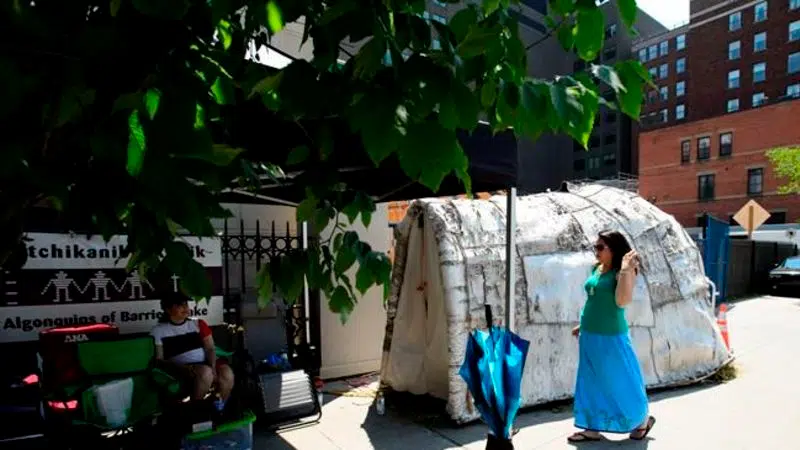
Algonquin Nation guaranteed space in Indigenous centre as deal ends hunger strike
OTTAWA — The Algonquin Nation will be guaranteed a space in a major Indigenous centre in Ottawa after an agreement with the federal government ended a grand chief’s hunger strike.
Verna Polson of the Algonquin Anishinabeg Nation Tribal Council had refused both food and water starting early Monday and extending into Tuesday evening.
Polson was protesting the limited role the Algonquins were playing in the development of the Indigenous Peoples Space, a project that encompasses a prime area near Parliament Hill centred on the former U.S. Embassy.
The project is run by three national Indigenous organizations. Polson said the Algonquin deserve equal standing because the building is on unceded traditional Algonquin land.


